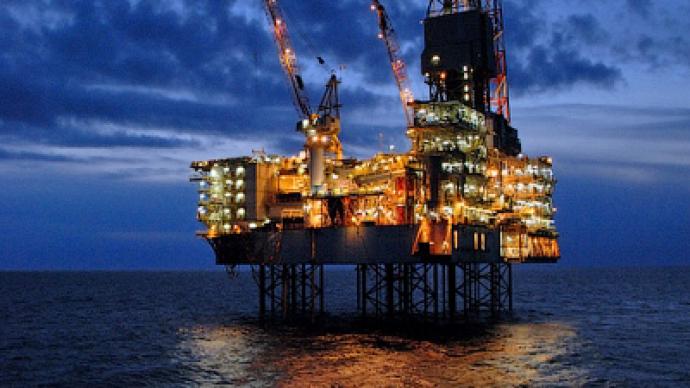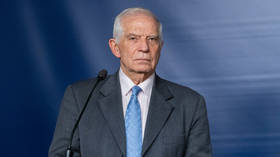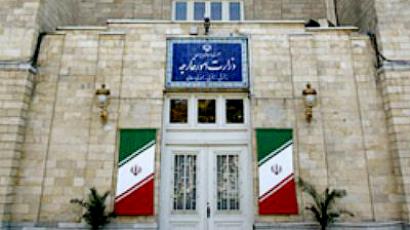‘Hurt Iran, and don’t stop hurting Russia’

Blasting Iran with new sanctions won’t stop the west from working with Iranian energy companies if the stakes are high enough, it seems. UK lobbyists have ensured that BP and others can continue a multibillion dollar gas project vying with Russia.
A political balancing act was needed to protect investment into Azerbaijan’s Shah Deniz natural gas field, where BP works with Iran. The second stage of this project operated by British Petroleum worth $20 billion is meant to decrease Europeans’ dependence on Russian fuel, reports the Wall Street Journal."There is broad-based consensus in the House and Senate that our sanctions policy should impose maximum economic pain on the Iranians without allowing Russia to hold Eastern Europe hostage for energy supplies," the newspaper cites a congressional aide familiar with the European lobbying effort as saying.The Shah Deniz II in the Caspian Sea is an international project operated by British Petroleum, which holds a 25.5 percent stake. Among other participants is the Iranian state-owned oil company Naftiran Intertrade, with a 10 percent stake. Washington’s sanction effort against the Iranian oil and gas industry could have blocked the project, but a lobby effort seems to have ensured an exception.A bill currently with the US Senate's committee on foreign affairs would ban any company dealing with the Iranian energy sector from doing business in the US. The current wording however says it will not affect efforts "to bring gas from Azerbaijan to Europe and Turkey," or to achieve "energy security and independence from Russia." European officials say they are closely monitoring the legislation’s progress, as well as other congressional proposals which could affect Shah Deniz II.The UK supports a policy that "balances the desire to put pressure on Iran over its nuclear program and makes sure it does not have an adverse impact on European economies," said a British Foreign Office spokesman, who confirmed to WSJ the lobbying on behalf of BP.American and European governments are putting pressure on Iran over its controversial nuclear program. In the latest round of action, the US and EU have targeted the Islamic Republic’s oil export through an embargo and sanctions against financial institutions involved in such trade. Iran, while hurt by the sanctions, has refused to review its nuclear policies.Natural gas from the Shah Deniz field was pumped from Azerbaijan to Turkey through Georgia in 2006. The project became fully operational the following year. The second stage consists of an additional offshore gas platform, sub-sea wells and expansion to the gas plant processing the fuel.In addition to BP and Naftiran Intertrade, the project includes Norwegian Statoil, the Azerbaijani State Oil Company, France's Total, Turkish Petroleum and joint Russian-Italian venture LukAgip, which is owned by LukOil and ENI.Russia is the largest supplier of natural gas to Europe, with Eastern European countries particularly dependent. The EU wants to decrease dependence on Russian gas through diversifying sources. Russia has been successful so far in maintaining its market share by contracting most of the gas produced in the energy rich Central Asian countries, leaving competing pipeline projects with little gas to pump.














